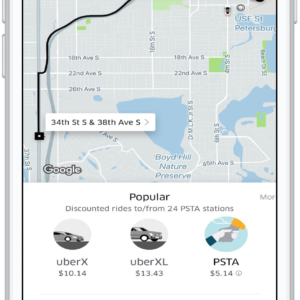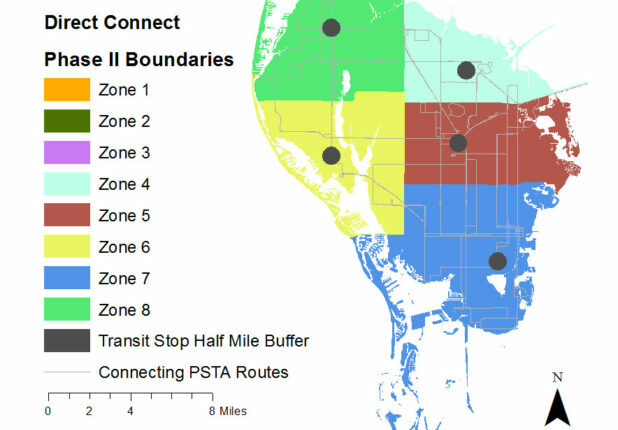The Pinellas Suncoast Transit Authority (PSTA) was the first public transit agency to sign a service provision contract with a private transportation network company (Uber) to provide subsidized first/last-mile connections to transit stops. A new case study by SUMC and Transit Center details the reasons why the agency took this step, how they responded to internal and external challenges as their pilot developed, and lists lessons learned with recommended actions for pilots going forward.
While PSTA was the first to take this step in 2015, today such partnerships are numerous and are increasing in both variety and scope. Agencies at any stage in the pilot process can benefit from understanding PSTA’s experience. The Direct Connect case study particularly addresses the following areas:
- The need to determine pilot goals and factor in post-pilot program development early in planning
- The value of being flexible in response to changing circumstances
- The vital role played by project champions both within an agency and in public
- The need for data-sharing and the importance of arriving at an agreement from the start—or making other plans for evaluation if that can’t be achieved
Partnering with an on-demand service provider offers transit agencies and riders great value in the right circumstances, but they’re far from a universal solution. These partnerships can be a convenient, affordable solution for first/last-mile connections and for service in low-density areas that are hard to serve with fixed route transit, and are a key component in the development of integrated multi-modal transportation systems.
The Direct Connect Case Study is a valuable tool for agencies that illustrates some of the challenges with transit-TNC partnerships and helps to shape agency approaches for future projects.
Go to the MOD Learning Center to download the case study, When Uber Replaces the Bus: Learning from the Pinellas Suncoast Transit Authority’s “Direct Connect” Pilot.



